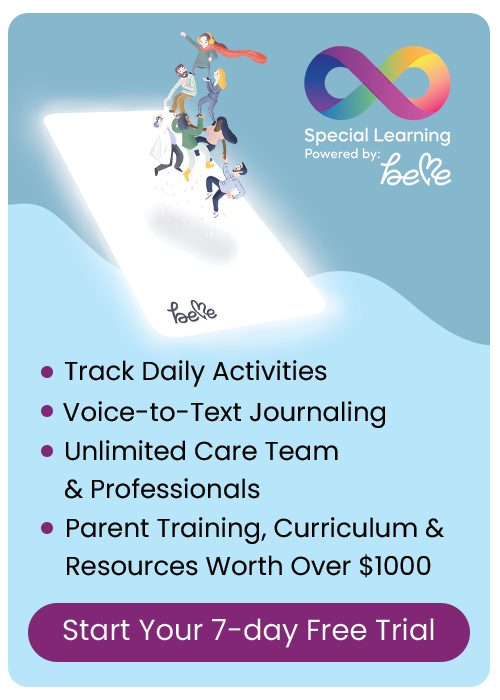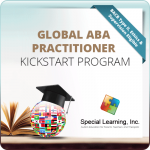Blog Categories
- ADHD
- Applied Behavior Analysis
- Autism Awareness
- Autism Service Providers
- Case Studies
- Dignosis
- Classroom Management
- Credentials
- Ethics
- Family Matters
- FAQs About LIVE Events
- Financial Planning
- Holiday Planning
- IEP's
- Panelists
- Private Equity in Autism & ABA Industry
- Psychopharmacology
- Sensory Processing Disorder
- Speech and Communication
- Subject Matter Experts
- Summer Planning
- Transition Planning
Special Learning Introduces a Spanish Language Version of its Renowned ABA Programs For Educators and Parents Working With Individuals with Autism Spectrum Disorder
Special Learning Introduces a Spanish Language Version of its Renowned ABA Programs For Educators and Parents Working With Individuals with Autism Spectrum Disorder
According to the Centers for Disease Control and Prevention (CDC) approximately 3.5 million Americans have been diagnosed with Autism Spectrum Disorder (ASD). Children and adults with autism face significant challenges – behavioral, social, communication, sensory, academic, and physical, among others.
Autism knows no cultural limitations. Over 400,000 Spanish-speaking Americans and approximately 74 million people across the world are estimated to suffer from autism. To date, non-English speaking educators, parents, and professionals working with autism have had limited to no access to effective resources to treat this disorder available in their native language.
Applied Behavior Analysis (ABA) – An empirically-based approach proven effective with Autism Spectrum Disorder (ASD)
There is no cure for autism, but there is at least one evidence-based treatment approach that has proven to be highly effective. Treatments for children with ASD using behavioral therapies designed to improve learning, communication and social skills have been proven empirically effective in a large number of research studies. These treatments are referred to as Applied Behavior Analysis (ABA).
According to Autism Speaks, “Applied Behavior Analysis (ABA) focuses on the principles that explain how learning takes place. Positive reinforcement is one such principle. When a behavior is followed by some sort of reward, the behavior is more likely to be repeated. Through decades of research, the field of behavior analysis has developed many techniques for increasing useful behaviors and reducing those that may cause harm or interfere with learning. ABA is the use of these techniques and principles to bring about meaningful and positive change in behavior.”
ABA is endorsed by the U.S. Surgeon General, The National Standards Project, and The National Professional Development Center on Autism Spectrum Disorders. It is also recognized by insurance providers, as evidenced by payor reimbursement for ABA-related services. ABA has demonstrated that it can help over 90% of people on the autism spectrum achieve some level of independence and with early and intensive application, to generate a nearly 50% success rate helping children with autism to mainstream.
ABA is unique in that it is a scientifically-based approach addressing individual behavior – every case is different because every person is different. Each individual has a different skills deficits, history, school situation, family life, preferences and learning behaviors, meaning that ABA is not a one size fits all kind of therapy. Differences in where these individuals fall on the autism spectrum (Aspergers, high functioning, low functioning) determines the type and intensity of ABA programming, which correlates to how quickly new skills are learned.
In addition to addressing behavior and language and communication skills, ABA principles and techniques help to foster basic skills such as listening, looking and imitating, and help develop complex skills such as conversing, reading and understanding another person’s perspective. Due to the individual focus of these principles and techniques, the cost of an ABA program varies dramatically.
A Limited Number of Professionals Limits the Access to ABA
There is an acute shortage of certified ABA experts, called Board Certified Behavioral Analysts (BCBAs); with only 23,000 BCBAs worldwide to work with the estimated 74 million people who are on the autism spectrum. Outside the U.S., there is an extreme scarcity of ABA experts to treat and supervise intervention programs. Currently, ABA therapy, supervised by a BCBA, is currently only accessible in about 20 countries.
Implementing ABA with certified ABA experts consumes a significant amount of time and resources. Typically, intensive ABA therapy requires about 35 hours per week and can cost from $75,000–$125,000 annually. Even if a portion of ABA therapy is covered by insurance, the out-of-pocket costs are still substantial.
Special Learning Provides Affordable, Cost-Effective Applied Behavioral Analysis (ABA) Training and Therapy
Fortunately, educators, parents, and other professionals can be trained to use ABA with individuals with autism. For the past six years, Special Learning has focused on leveraging technology to develop, design, test, refine and implement the highest quality and most cost-effective means to allow people around the world access to quality ABA training and therapy. Since 2010, thousands of individuals across the globe have learned how to implement Applied Behavioral Analysis (ABA) through Special Learning’s on-line programs. Special Learning’s sequenced learning system provides training and certification programs that meet the needs of novices through experts in ABA.
With the release of our Spanish-language products, the first non-English version of the Special Learning courses available (with more languages to follow), Special Learning is working toward making ABA training accessible to everyone, everywhere without limitations. With this new line of products, we continue our work to inform, educate and empower parents, teachers and care providers in implementing effective teaching and treatment practices.
“Autism is an immense global condition,” said Karen Chung, CEO and Special Learning founder. “Special Learning has the courage, strength and wherewithal to tackle this problem. We believe that this is our social responsibility. Together we can make a difference.”
For more information on the new Spanish-language products or any of the other ABA programs and materials, visit Special Learning’s website, www.special-learning.com, or call Dr. Blaise Mercadante at bmercadante@special-learning.com
RECOMMENDED PRODUCTS
Global ABA Practitioner Kickstart Program
Build Your Own CE Library – Gianna Apicella (20 CEs)





